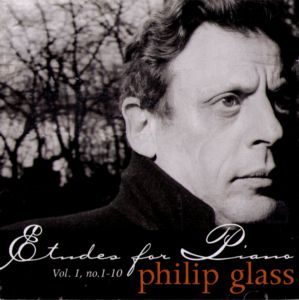
- Format: FLAC

When it comes to Philip Glass, merely mentioning his name alone engenders equally passionate reactions of appreciation or vitriol. Supporters applaud him for rescuing classical music from the dead end of serialism; detractors condemn him for perpetuating a numbingly repetitive and simplistic style. While an early groundbreaking work like Einstein On The Beach (1975-6) understandably polarized audiences with its audacious challenges to operatic conventions, Glass continues to this day to upset listeners despite evolutionary changes which have rendered his musical style more accessible. To this end, Etudes for Piano, Vol. 1, no. 1-10 serves as one more brilliant example of why Philip Glass might be labeled as the composer you would love to hate. Created to expand his own technique, hence the name Etudes, these compositions are more emotionally expressive and intimate than those on Solo Piano (1989), and adhere less rigidly to a principle of structural repetition. Dynamic contrasts of tempo and mood abound, bestowing a sense of singularity upon each piece. The majestic "Etude no. 6" and celebratory "Etude no. 1" contrast, for example, with the ruminative second and fourth pieces, whereas the aggressive third hews more closely to Glassís trademark style. While many of the pieces are densely arranged, "Etude no. 5" is almost skeletal by comparison, its lack of adornment accentuating its melancholy aura. Overall, the recording is atmospheric and resonant, and presents a more romantic side of Glass. The affectingly wistful "Etude no. 8", for example, recalls The Hoursí elegiac mood.